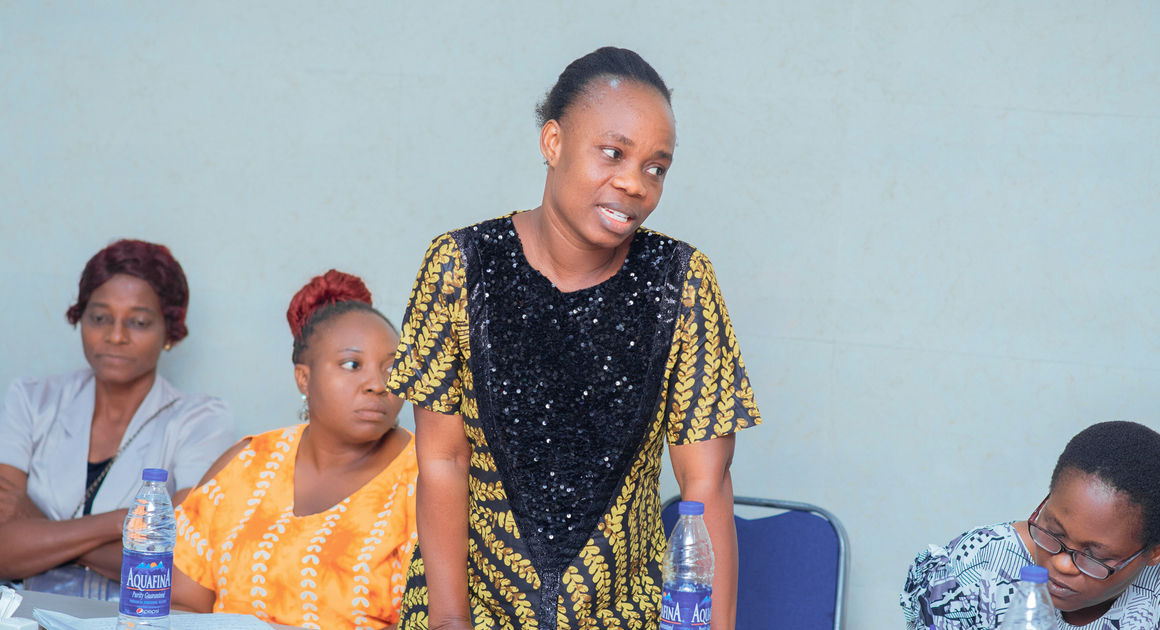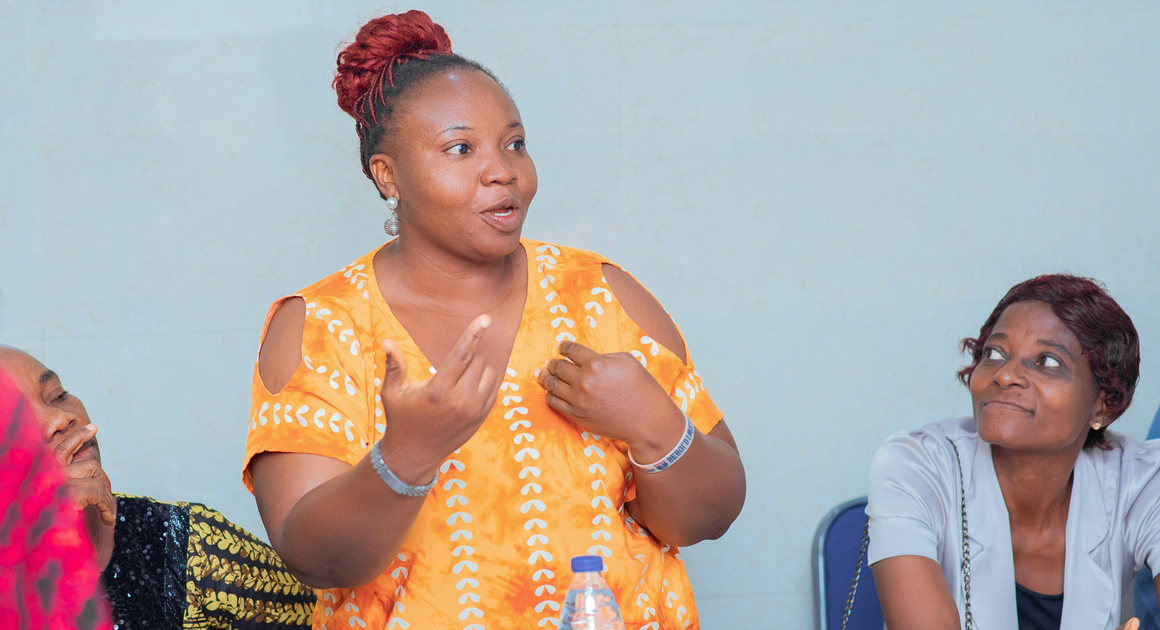
Moradeke Abiodun-Badru
FNV Project Empowering Community Health Workers in Delta, Nigeria
In Nigeria, most CHWs are women. They work under precarious conditions that constantly put them on the edge. The two-day workshop provided them a space to share their experiences, gain knowledge about public health leadership and advocacy. They performed role plays on community outreach to enable them to develop skills for engaging the communities they serve. The training equipped them with tools to enable them to advocate for their rights and deliver quality primary health care services.
“In the north, we refer to CHW as Duban Gari (Watchmen), because they go to people’s homes to check the toilets and make sure your house is clean," said Comrade Dangombe, State Secretary, MHWUN.
Organising CHWs for Decent Work and Delivering Quality Primary Health Care Services
Even though CHWs are critical and inadequate across primary health care centres, some of are sidelined, excluded and subjected to undignified treatment by their employers. MHWUN identified this and provided a safe space for sharing these experiences as a springboard to build their skills and provide support for them to reclaim their dignity while serving communities.
Spelling Eferusuoa Senior Community Health Worker

I studied Community Health, but I was employed as a cleaner. When I complained, they told me to obtain a higher certificate. I went on to study Public and Community Health. After my Bachelors program, the Community Health Board said they cannot place me as a CHW without a Senior CHW in the facility. It took a lot before I was placed as a senior CHW.
Defending the Rights of CHWs through Social Dialogues and Collective Bargaining
Role plays were adopted to practically illustrate how workers engage in social dialogue and collective bargaining by workers. This session assisted participants to build their advocacy and campaign strategies. They conducted mock community engagements and collective bargaining with their employers. For most of them, this was the first time they had come close to this kind of engagement. They felt energised and equipped to engage their communities after the workshop.
Ifeanyi Chuckwu Community Health Worker

In Umuanaje, the Community has a feeling that we are not giving them quality care, without knowing the challenges we are facing. But from this training, I am taking some things with me, and one of them is that care should be person-centred.
Building Leadership and Addressing Gender-Based Violence and Harassment in the Workplace
Even though women constitute a large majority of CHWs in the state, they are often sidelined as crucial decision-making excludes them. They are mostly given quotas for participation, which does not necessarily take on influencial roles. A participant said, “I think the leadership of women in my union is being improved by putting women in some of the high positions to be mentors to the young workers.”
PSI held a leadership session for the CHWs and union leaders to strengthen safeguard measures and enhance the meaningful participation of women in union activities. The ILO C190 was thoroughly discussed and participants gained knowledge and power to resist any form of harassment that may have been normalised in their communities over time.
“It's a good idea to bring women in leadership to create a balance of power,” Nana Aisha, Gender Desk Officer, MHWUN.
Union leaders committed to building safeguard measures against any form of gender-based violence in their union and promote the leadership and participation of women in the activities of the union.
For CHWs in Delta, the structures have been built for them. Tools have been delivered into their hands to demand their rights, engage their communities, build allies that would support them in asking for materials and equipment that would enable them to deliver quality public services to the communities they serve. They are better informed to build safeguard measures against any form of gender-based violence in the workplace.